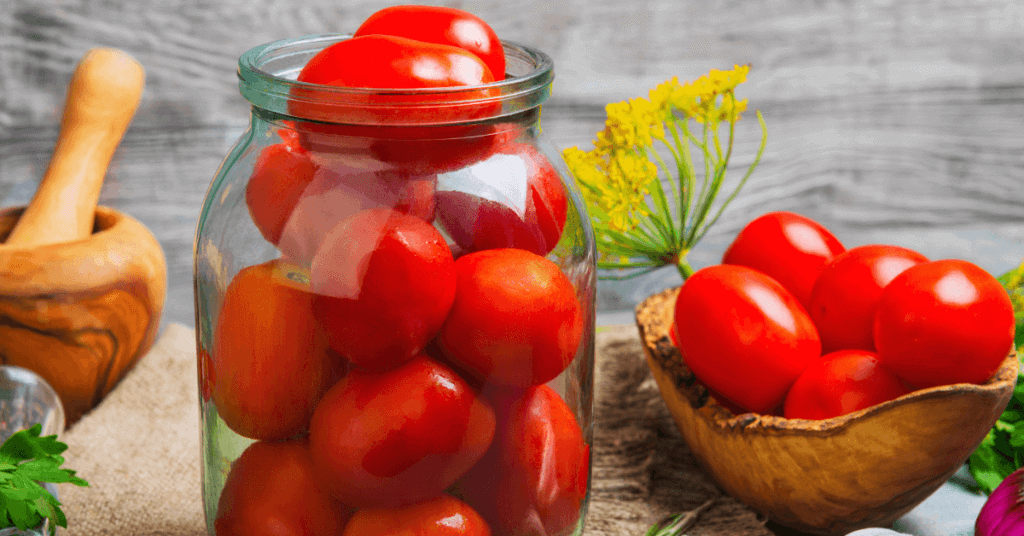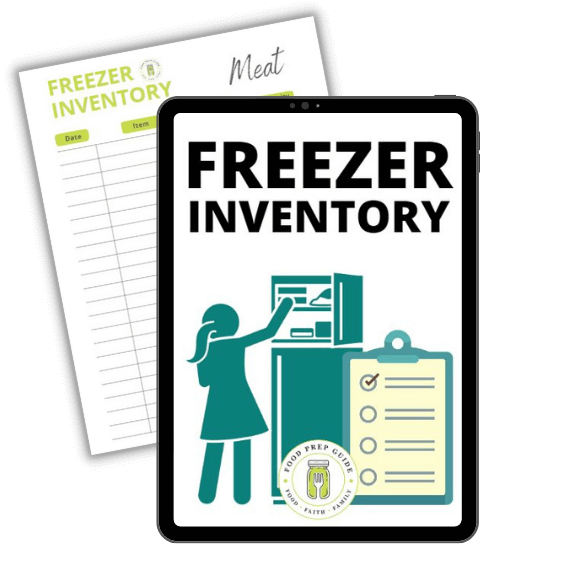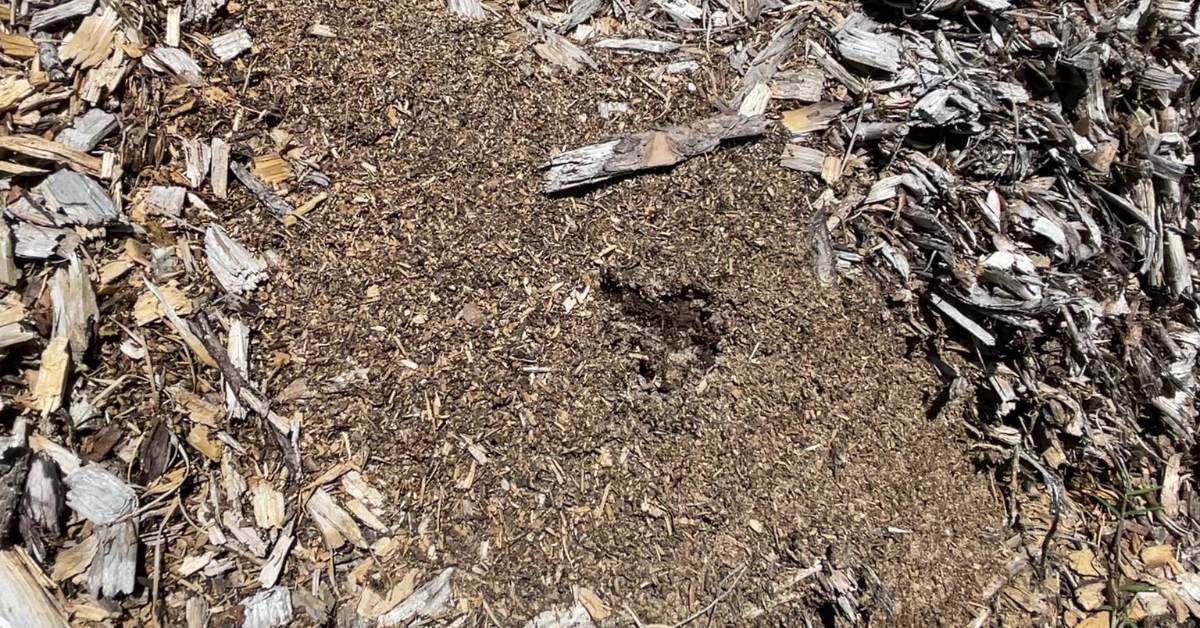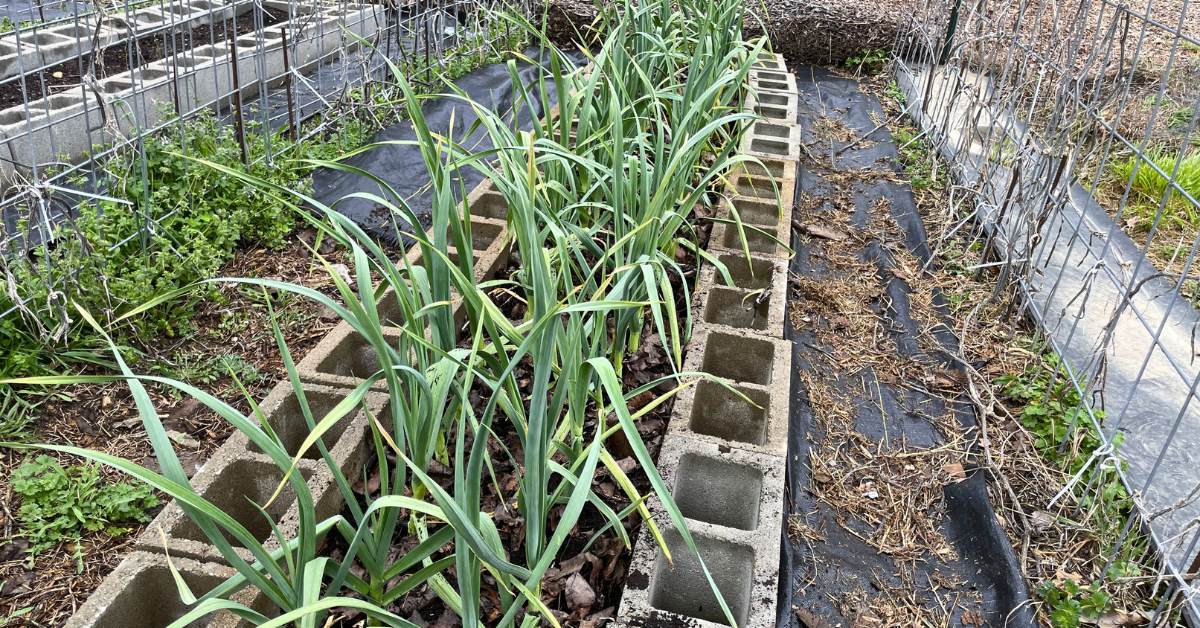You’ve raided the garden (or snagged a deal at the food co-op).
You’ve made soups and pastas and grilled cheeses with zesty fillings.
But what is the best way to preserve tomatoes when you can’t possibly cook anymore?
There are two popular options for storing tomatoes: canning and freezing.
Both will get the job done, and both have their own pros and cons. Ultimately, your choice will come down to what fits within your budget, your lifestyle, and your culinary expectations.
Let’s talk about canning vs freezing tomatoes and which is right for you.
The Case for Canning Tomatoes
The first method for preserving tomatoes is the traditional one: canning.
Despite the mental images that this might conjure, you don’t have to live in a bunker to can your own food! Many organic and food-conscious folks do it so that they can enjoy the bounty of seasonal veggies all year long.
Benefits
Better preservation. Tomatoes can lose their texture when they’re frozen, becoming mushy from the breakdown and expansion of their fibers over time. This doesn’t happen with canning. Your tomatoes will retain their crispiness, which is especially nice when you’re storing diced or chopped tomatoes rather than something like tomato paste.
Longer shelf life. Canned tomatoes can last for 1 – 2 years. By contrast, frozen tomatoes are best consumed within a year or less.
No need for power. Preserving tomatoes without a freezer will require the use of either cans or airtight containers like Mason jars. You’ll need a way to prevent spoilage that isn’t dependent on electricity. The good news is that, when you go the canning route, you won’t ever have to worry about power outages!
Disadvantages
Safety issues. Canning is a safe practice overall, but it isn’t without its risks. Botulism is the big concern. You’ll also want to skip canning if you cooked your tomatoes with any kind of vegetable oil, which can encourage bacterial growth.
Works best with special equipment. You don’t need professional canning equipment to store tomatoes, but it’s a good idea, especially if you’re a beginner who doesn’t know where to start. You can choose from multiple types of canning devices, including pressure canners and hot water bath canners. Some types are more expensive than others.
FREE FOOD STORAGE PLAN!
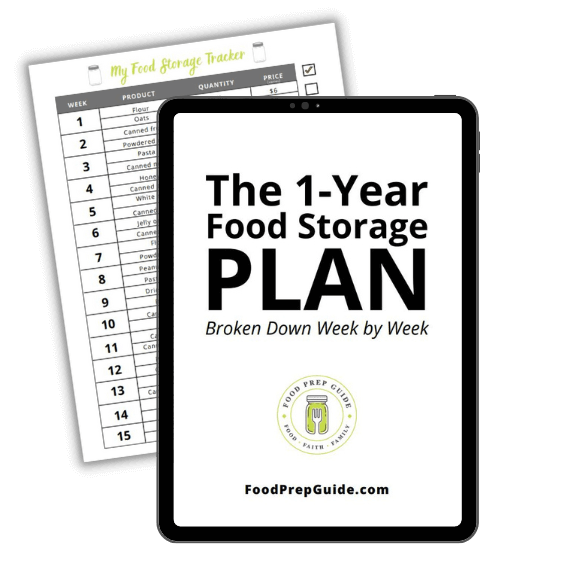
Does gathering and storing a year’s worth of food for your family seem overwhelming and unachievable?
Make it easy with our step-by-step plan. Subscribe to our weekly newsletter & we’ll send it to you FREE!
The Case for Freezing Tomatoes
Can tomatoes be frozen? The short answer is yes.
The long answer is “yes, and it’s becoming increasingly common, but it isn’t without drawbacks.”
You’ll want to carefully consider the pros and cons of freezing your tomatoes.
Benefits
Simplicity. Freezing your tomatoes is quick and easy. You don’t need any special equipment, and you don’t have to do it in big batches. If you just have one or two leftover tomatoes that you don’t want to waste, pop ’em in the freezer in an airtight container.
Works with all types of tomatoes. There are many ways to transform a tomato, including peeling, coring, seeding, and blanching. You can freeze tomatoes in any form and at any “stage” of prep.
Multiple ways to store. As long as their container is tightly sealed, you can freeze your tomatoes in just about anything, including bags, pouches, and Mason jars. For the best results, use a vacuum sealer with your chosen container.
Disadvantages
Diminished quality. Frozen tomatoes usually have some degree of mushiness after they’re thawed. This won’t matter if you’re going to cook them down into a stew or a casserole, but if you’re hoping for good, bite-worthy tomatoes, freezing might not be your best bet.
Reduced longevity. Tomatoes usually last between 6 – 12 months in the freezer. They’ll be safe to eat for longer periods, but their quality won’t be worth it. Taste and texture can take a nosedive after extended freezing.
Requires electricity. If you’re looking to stash tomatoes in a basement, cabin, tornado shelter, or some other out-of-the-way place, you’ll need to pay for power to freeze them. Don’t forget about the danger of blackouts, too. They can ruin your tomatoes even in a home setting.
Takes up freezer space. If you already have a million things in your freezer, it might be easier to can your tomatoes just to get them out of the way. We all know the pain of an overstuffed freezer!
Why You Might Want to Freeze and Can Tomatoes (Best of Both Worlds)
If you can’t decide between freezing and canning your tomatoes, why not do both?
It is perfectly safe to freeze tomatoes and then can them. In fact, it’s one of the best ways to preserve whole tomatoes before prepping them for long-term storage at a later date.
You can just freeze them in time until you’re ready to deal with the peeling, blanching, chopping, and so on. In fact, I recommend this method for preparing tomato sauce.
Another benefit of freezing your tomatoes before canning them is that you can “rotate” a large bounty for maximum freshness.
Not only will this improve the quality of your ingredients in tomato-based recipes, but it’ll also reduce waste if you bought too much at the farmer’s market or had an unexpectedly large yield from your garden.
There are some disadvantages to freezing and canning tomatoes.
For example, their texture will start to break down in the freezer, so you might find them less palatable or harder to peel and core once they’ve been thawed.
Ultimately, however, there’s nothing wrong with freezing tomatoes for canning later. It’s safe to do, and it can help you cultivate a year-round tomato stash. Even when tomatoes are out of season, you can open the freezer or the pantry and dig in!
If you happen to have cherry tomatoes on hand, I actually recommend dehydrating them.
Is Canning or Freezing Better?
At the end of the day, there’s no right or wrong answer it comes to canning vs freezing tomatoes. Both methods have benefits, but both have drawbacks as well. Think about your options carefully and make the decision that’ll preserve your garden veggies in a way that’s right for you.


